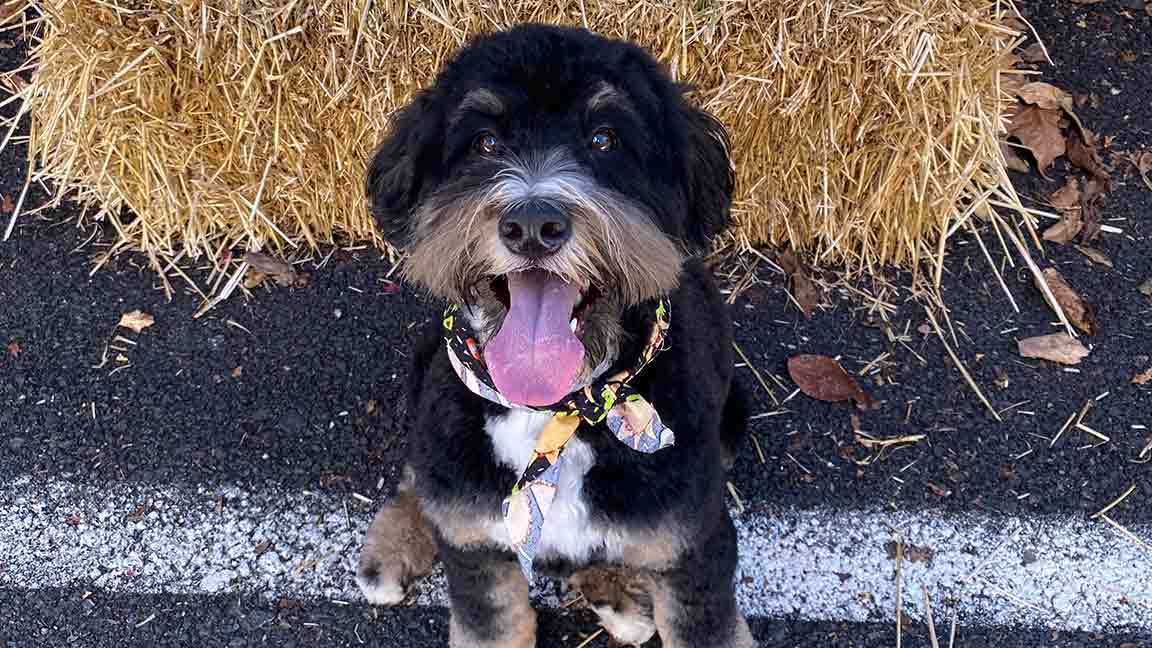When you imagine bringing home one of the adorable tiny Bernedoodles, it’s easy to fall in love with their lovely faces and compact size. However, as responsible pet lovers, we know the most important question isn’t “How cute are they?”, but rather “How healthy are they?”
At Love Berners, we believe transparency about breed health is just as important as those irresistible puppy cuddles. The good news? When bred responsibly, tiny Bernedoodles can be wonderfully healthy companions. Let’s explore what makes these petite pups thrive.
Understanding Tiny Bernedoodle Health Fundamentals

Tiny Bernedoodles (typically 10-24 pounds) combine the best traits of their parent breeds:
From Bernese Mountain Dogs:
- Gentle, affectionate temperament
- Those beautiful tri-color markings
- A loving, loyal nature
From Poodles:
- Hypoallergenic, low-shedding coats
- Sharp intelligence
- Generally longer lifespans
But creating healthy tiny Bernedoodles requires careful breeding to address some key considerations.
Critical Health Factors for Tiny Bernedoodles

1. Responsible Size Development
Unlike “teacup” trends, we focus on healthy miniaturization by:
- Never breeding runts or abnormally small dogs
- Using only parents with ideal conformation
- Monitoring growth to ensure proper development
2. Essential Health Screenings
Every Love Berners parent undergoes testing for:
- Hip and elbow dysplasia (OFA/PennHIP certified)
- Eye conditions like Progressive Retinal Atrophy
- Genetic disorders like Von Willebrand’s Disease
3. Lifespan Expectations
With proper care, tiny Bernedoodles typically enjoy 12-16 years of life. Their smaller size often means fewer joint issues than standards, but requires attention to:
- Dental health (common concern in small breeds)
- Proper nutrition for their metabolism
- Appropriate exercise to maintain muscle tone
Keeping Your Tiny Bernedoodle Healthy

Nutrition Essentials
- Special small-breed formulas with proper kibble size
- Controlled portions to prevent obesity
- Joint supplements as they mature
Exercise Needs
Despite their size, they need:
- Daily walks plus playtime (30-60 minutes total)
- Mental stimulation through training and puzzles
- Low-impact activities to protect joints
Grooming Musts
Their beautiful coats require:
- Regular brushing every 2-3 days
- Professional grooming every 6-8 weeks
- Frequent ear checks and cleaning
Choosing a Healthy Puppy: Red Flags to Avoid
Steer clear of breeders who:
× Can’t provide health clearances for parents
× Won’t answer questions about their breeding program
× Have puppies available constantly

Your Tiny Bernedoodle Health Questions Answered
Do tiny Bernedoodles have more health problems than larger ones?
Not when bred responsibly. Health depends more on genetics than size alone.
What’s the most common health concern?
Luxating patellas (knee issues), which is why we prioritize orthopedic health in our breeding program.
How can I maximize my puppy’s lifespan?
Choose an ethical breeder, maintain ideal weight, and stay current with vet care.
Are breathing problems common?
Unlike flat-faced breeds, they typically don’t have respiratory issues when bred properly.
The Love Berners Health Promise
We go beyond basic requirements by:
- Tracking multi-generational health histories
- Offering a health guarantee
- Providing lifetime breeder support
Because every Bernedoodle – no matter how small – deserves the healthiest possible start.
Ready to welcome a happy, healthy tiny Bernedoodle into your life? Contact us to learn about our upcoming litters, raised with love and scientific care.


